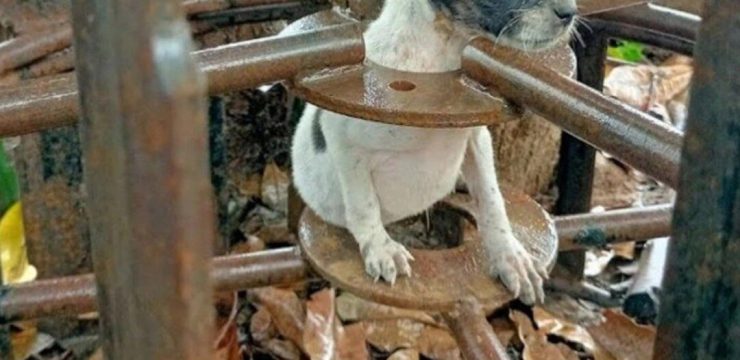When the flat I’d been renting was put up for sale, I had to pack up and leave. I cleaned every corner before turning in the keys, not out of obligation but simply because it felt right. The next day, my landlady called. I assumed she had discovered something damaged and was bracing myself for an awkward conversation. But instead, she thanked me—for cleaning so thoroughly—and then asked something that caught me off guard: “How come you’re not bitter like the others?”

I laughed awkwardly and replied, “Maybe I’ve just had good landlords.” She chuckled, “No, you haven’t. I remember how the boiler broke in December, and the ceiling leaked during that storm. You never complained.” The truth was, I had been frustrated, but I didn’t see the point in being unkind about something no one could control. Her words stayed with me long after the call: “You’re not bitter like the others.” I didn’t feel particularly kind or different. I felt like I was barely staying afloat—between jobs, scraping by on freelance work, recovering from a recent breakup. My new flat was smaller, darker, more expensive. But that comment lingered in my mind as I headed to a nearby café the next morning to look for jobs and teaching gigs. The barista looked overwhelmed, and I overheard her say they were short-staffed. I asked if they were hiring. She blinked at me, surprised, but handed me an application.
Two days later, I was steaming oat milk and taking coffee orders. It wasn’t glamorous, but it was honest work, and the café had a welcoming, community feel. That’s where I met Mr. Harrington, a quiet older man who tipped generously and ordered the same black coffee every morning. One rainy day, he left without his umbrella, and I chased him down the street to return it. He looked at me like I’d handed him a precious gift. “Young folks don’t usually notice much,” he said. “You’re different.” That word again—different. I didn’t feel it. I was just trying to be decent. Over time, Mr. Harrington began staying longer.
One day, he brought a notebook and told me he was trying to write again. He said he wanted to write a memoir, something he’d always dreamed of but never pursued. I encouraged him, told him his story mattered. Gradually, he started sharing pieces with me—memories of working construction, of raising a daughter, of losing his wife. His writing was raw and beautiful. Honest. Real. One afternoon, he told me, “If you hadn’t brought me that umbrella, I probably wouldn’t have come back.” I started to see how small acts could ripple out in quiet, unexpected ways. Around the same time, I stopped a guy trying to break into the local laundromat.
The owner, Nia, had always offered me a free wash even though I never accepted. After that night, she left a bag of pastries at the café with a note: “You watch out for people. So now we’ll watch out for you.” I started feeling something I hadn’t in a long time—like I belonged. I wasn’t making much money, but I had a rhythm. A place in the world. A month later, my old landlady called again. She said the flat had sold and the new owners wanted to rent it out. She recommended me. No agency fees. Same rent. I almost cried. My current place had mold and barely any light. Going back felt like a second chance. A week later, I was back in my old flat with a thrifted couch and a few plants. It felt like home again. One morning, I found an envelope at my door.
No name. Just a note that read, “Some things come back to you when you least expect them. – Nia.” Inside was a grocery store gift card. A few months later, Mr. Harrington’s memoir got published by a small press. He invited me to the launch and asked me to sit up front. During his speech, he said, “I owe this to someone who gave me their time when they didn’t have to.” He looked at me as the audience clapped. He gave me a signed copy with a note inside: “To the quiet force who reminded me I still had a voice.” I still keep that book on my shelf. Things didn’t magically become easy. I still worked long hours. I still had to budget every penny. But the heaviness started to lift. One evening, the café manager told me, “You’ve brought more people in than any marketing we’ve done.
They come back for you.” A few weeks later, I was promoted to assistant manager. Better pay. Better hours. I stopped tutoring at night. Eventually, I started a side project: free writing workshops at the café. People came to share their stories, their poetry, even unsent letters. One teenage girl left me a note after class: “I used to think nobody saw me. But I think you do. Thank you.” Sitting alone in that room, I realized kindness really does leave a trail. I never set out to make a difference. I just didn’t want to make someone’s day worse. But somehow, those small moments—the umbrella, the cleaned flat, the shout in the night—started to loop back around. We think we need big gestures, titles, or accomplishments.
But sometimes, it’s the quiet presence, the listening ear, the gentle nudge that echoes loudest. So if you’re out there wondering whether your little acts matter, they do. They settle in the hearts of people you may never fully know. And sometimes, when you least expect it, they come back to you—like sunlight through a kitchen window, or a book with your name scribbled inside.





